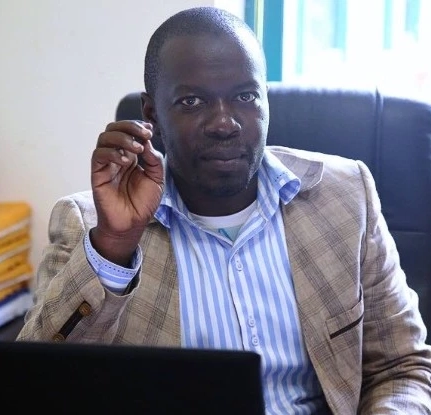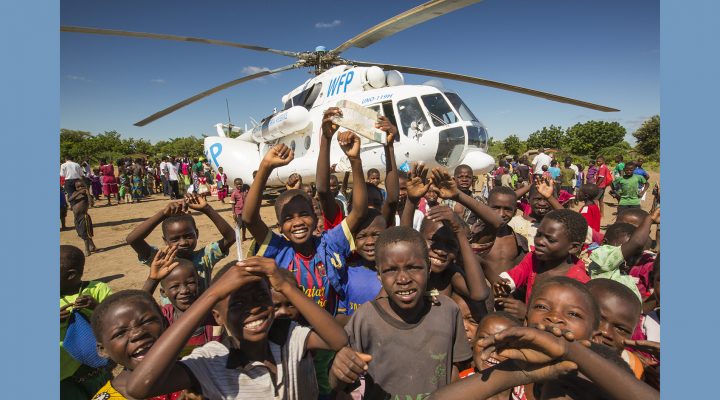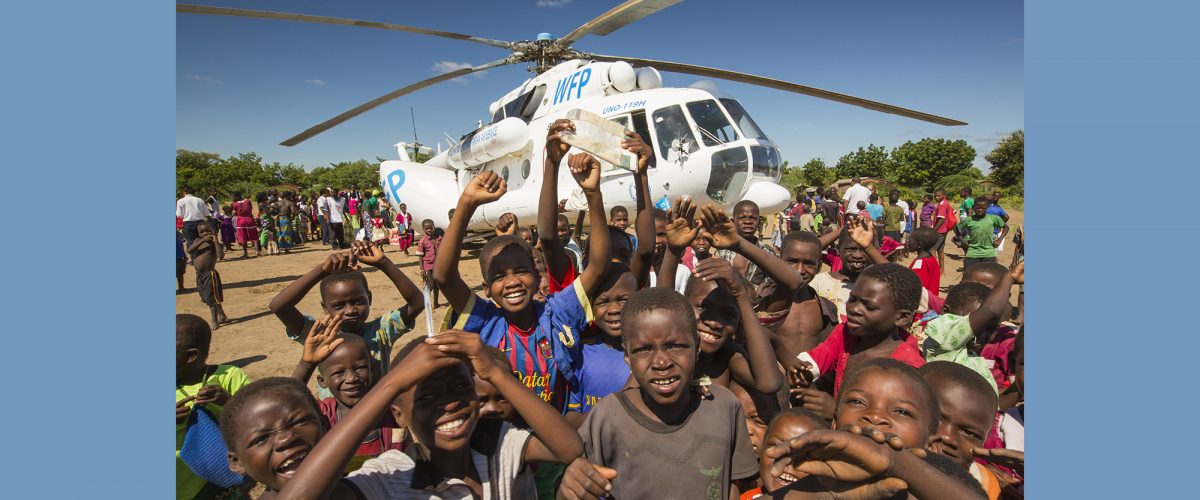While Southern Baptists have been focused on alleged mishandling of sexual abuse cases in the United States, there’s another, less-talked-about legacy of sexual abuse perpetuated by Christian missionaries sent from the United States to other countries.
As one of the largest missionary-sending denominations in the world, the Southern Baptist Convention has played a role in this unspoken drama, although the SBC is far from alone in addressing problems created by a relatively small number of wayward missionaries.
Malawi, one of the world’s least-developed nations, has a history of Western missionaries behaving unethically with children under their care. This has happened against the backdrop of American and European missionaries lavishly helping out with adoptions, education and health care in the southeast African nation.
Easy to overlook

Yasin Kakande
“Malawi’s encounter with dishonorable missionaries have largely been forgotten or overlooked by global audiences because the country is hardly known among U.S. audiences,” said Yasin Kakande, author of Why We Are Coming. “Do the problems with regard to U.S. missionary church scandals get ‘outsourced’ to less-known overseas territories? Well, somehow, yes. It’s not intentional, but because of a lack of wide publicity, bad things do slip by under-detected in faraway missionary territories like Malawi.”
If Southern Baptists and other missionary-sending denominations in America have had trouble addressing sexual abuse in their own churches, how much more difficult could it be to acknowledge abuse in far-away places?
Malawi’s misfortune of having hosted dishonorable missionaries came to the fore in the case of Gerald Campbell, a nondenominational Christian missionary from Texas who admitted to the U.S. Justice Department he molested and defiled Malawi children in 2016. A 2019 report revealed how Southern Baptist missionaries who allegedly violated children in Malawi and Indonesia left a trail of 24 victims. And then, in December 2022 a Christian pastor from America was accused of violating children at a Malawi orphanage connected to U.S. superstar Madonna.
All this is “a tip of the iceberg, considering that missionary misdeeds in countries like Malawi are severely underreported compared to say those in Texas or London,” Kakande said.
Doing good
White Western missionaries and celebrities routinely express interest in working in Malawi out of a genuine desire to help children orphaned by the HIV crisis there. The World Bank says at least 54,000 children in Malawi were orphaned by HIV in 2021. Malawi, which is one of Africa’s biggest recipients of Western humanitarian aid, cannot juggle health care, food, clean water or decent education challenges alone without missionaries arriving to physically help out with some dire needs.
“While the Malawi government is doing fairly well in providing HIV diagnosis and treatment, it’s the aftermath, food, stable families and education that American missionaries and celebrities do provide in Malawi via funding orphanages and foundations,” said Peter Fakala, a gender rights campaigner with the Malawi Association of Progressive Trade Unions. “For some celebrities like Madonna, working with babies in Malawi certainly boosts egos — but there is a dark side to charity.”
“Bad apples certainly exist, and I think sometimes go unreported compared to what we are seeing in the SBC churches in the U.S.”
The dark side is a small number of Western missionaries who feel emboldened that they can violate kids in overseas outposts like Malawi and probably get away with it because the spotlight is elsewhere, said Fakala, the trade unionist. “It’s important to emphasize that the majority of American and Western missionaries working with kids in Malawi are upright persons and do no harm. However, bad apples certainly exist, and I think sometimes go unreported compared to what we are seeing in the SBC churches in the U.S.”

Kristin Kobes Du Mez
Kristin Du Mez, history professor at Calvin University and bestselling author of Jesus and John Wayne, said many years ago now, she started to hear stories about sexual abuse of children by missionaries. These investigations detailed the abuse of missionary children at the hands of fellow missionaries at boarding schools. She wondered even then if these abuses were being covered up in the name of protecting the “work of the Lord.”
“Sexual abuse is abuse of power, and the power dynamics in missionary communities are ripe for abuse,” she explained. “On top of that, if abuse surfaces, fellow missionaries will be torn between doing what is right and doing what they mistakenly think will protect their mission.”
“So much can be covered up in the name of sharing the gospel.”
She warns: “So much can be covered up in the name of sharing the gospel. If eternal souls are at stake, it’s easier to justify the destruction of children’s bodies and spirits.”
Obscured by needed aid
In far-flung overseas outposts like Malawi, which are rarely visible to American media audiences, this abuse is only exacerbated when missionaries provide much-needed services such as health care and education.
“Then, local officials and members of local communities, too, have reasons not to call out abuse and punish abusers,” Du Mez explained.
This is exactly the dilemma in overseas outposts like Malawi, according to Oscar Matemba, leader of the Blyntre Youth Integrity Forum, a good governance lobby in Blyntre, Malawi’s commercial capital.
The latest Malawi missionary scandal was reported in December by the Platform for Investigative Journalism, claiming some orphanage managers at a place where Madonna adopted her second child allegedly tried to protect the accused white pastor. Kondanani Children’s Village, the orphanage at the center of the allegations, denies any attempts at coverups.
“Sometimes the missionaries can escape censure because they are the ones feeding and clothing vulnerable children.”
“When too much is at stake financially, sometimes the missionaries can escape censure because they are the ones feeding and clothing vulnerable children and nobody has any idea what to do with the kids if the missionaries withdraw funding,” Matemba said. “Because of poverty in Malawi, we need all the help we can get from global humanitarian actors. This is good, but it means when foreign Christian missionaries have so much money and influence, we have diminished power to censure them should they go wayward.”
Some young Malawians, especially the Gen Z and Millennials like Oscar Matemba, say they are no longer the generation that blindly assume missionaries and celebrities coming to Malawi to do “good works” are all upright persons. The time is right, they say, to ask questions whenever there is a whiff of Christian missionaries taking advantage of the vulnerable.
“Past generations here in Malawi because of colonial brainwashing viewed all missionaries as white ‘do-gooders’ — good American charity in a poor country,” Matemba said. “Violators of children must not enjoy impunity under the veil of the Lord’s work. If violators face the law, as with SBC churches in the U.S., so must the same scrutiny be applied here in Malawi.”
Degracias Kalimo is a freelance writer who lives in Malawi.
Related articles:
Abuse arrest turns #MeToo spotlight on SBC International Mission Board
Advocates seek transparent probe into alleged abuse failures by SBC


